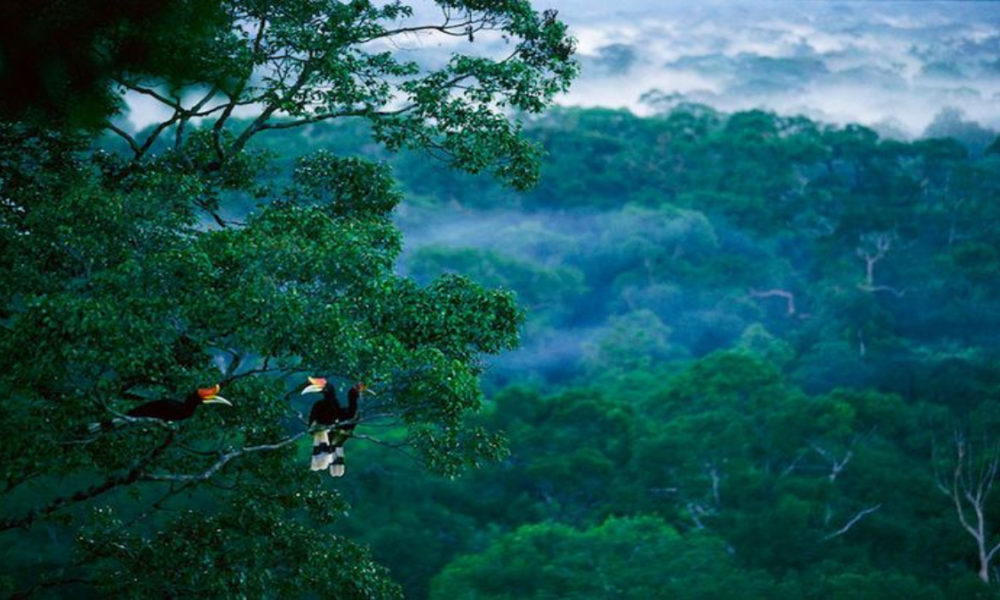The theme for the World Environment Day this year is biodiversity. According to the International Union for the Conservation of Nature, India is a megadiverse country. Our landscapes ranging from mountains to wetlands support 45,000 species of plants and 91,000 species of animals. Although we cover 2.4% of the world’s land area, we have 7-8% of the recorded species. Our biodiversity hotspots like the Sundarbans, the Himalayas, the Western Ghats and the Northeast are threatened by habitat destruction, poaching and climate change.
Biodiverse forests have great value. We are all aware that they sequester carbon but they also have economic vale, potential cures for diseases and food sources we are not even aware of. It is estimated that the services provided by biodiversity are worth $125-140 trillion which is more than one and a half times that of the world’s GDP.
During the pandemic, the Ministry of Environment, Forests and Climate Change has taken a few shocking steps that compromise some of India’s most biodiverse regions. The Standing Committee of the National Board for Wildlife has cleared multiple projects through online meetings. Some of these are highway construction passing through the Mollem Wildlife Sanctuary and the usage of 98.59 hectares of reserve forest in the Dehing Patkai Elephant Reserve for open cast coal mining. The Forest Advisory Council has been deliberating clearing parts of Arunachal Pradesh’s rich rainforests in the Dibang Valley. The entire Environment Impact Assessment Notification is in the process of being diluted.
In the wake of the Covid-19 pandemic, the steps taken by the ministry seem extremely short-sighted. Scientists have long warned us that deforestation displaces wild animals which then puts them in closer proximity to one another and to us. This increases human exposure to new infectious diseases. Economic growth and job creation are justifications propounded by our policymakers for such irreparable environmental damage. The economic benefit that comes from destroying our biodiversity is temporary and there is a far greater price that we will need to pay in the future. For example, according to the Global Climate Risk Index, India is the fifth most vulnerable country to climate change. By the year 2050, 200 million people will be displaced as a result of climate change, many will be Indians. The poor will be the most vulnerable to ecological degradation. The situation is grave and it needs to be taken far more seriously by those in power. Our policymakers need to lead more innovatively; we need to develop but not at the cost of the environment that sustains us.
The question that we are often faced with is: if those in power do not take sensible decisions which support India in the long run, what can people like us do? The fact is we can take small strategic high-impact steps. As a start, we must hold our political leadership accountable and ask elected representatives for their climate change agenda. When political parties campaign for votes, we must demand environmental/sustainability goals be added in their manifestos. We can build capacity amongst our bureaucracy, develop coalitions, invest in research and create advocacy groups. We need to take ownership of our environment and the need to protect it. As citizens, we need to think bigger. Taking steps to make our own lives sustainable like turning the lights off when we leave a room are positive but there is so much more that we can and must do. In our battle against climate change, each one of our skills are vital and we must be heard. This is an issue that impacts our survival as a species and we must, like in our fight against Covid-19, band together with single-minded focus.
A good example for us to study is that of the Netherlands. The Dutch government recently announced significant cuts to coal usage and limited its livestock herds. The impetus for these measures did not come from the Dutch government but from a Supreme Court ruling. The Urgenda Foundation, a non-profit, and over 800 co-plaintiffs filed a climate change litigation in 2013 which led to the present cuts. However, it is noteworthy that the government adopted 30 of the proposals in Urgenda’s “54 Climate Solutions Plan”.
Our political leadership will act on the issues that are important to us. We need to place biodiversity high on our agenda and if this does not lead to sustainable climate sensitive leadership, then perhaps India’s natural environment needs a climate action lawsuit.
The writer is a lawyer, environmentalist and animal rights activist.














